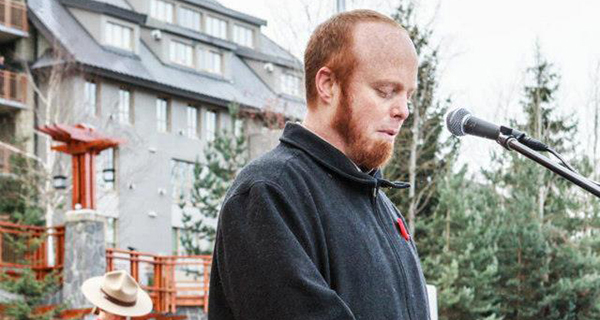 A common T-shirt reads: “It seemed like a good idea at the time.”
A common T-shirt reads: “It seemed like a good idea at the time.”
Whistler, B.C., Mayor Jack Crompton is wearing a neon version these days.
Recently, Crompton infamously asked leading energy companies, including Canadian Natural Resources Ltd., to ante up a chunk of change to help mitigate impact that Whistler is ostensibly experiencing as a result of climate change.
Predictably, he was dealt a quick lesson in Whistler’s own role in climate impacts.
Buried in the outpouring of response – which ranged from the irrational to the pragmatic – was an important point made by Cenovus boss Alex Pourbaix. He pointed out that 80 per cent of emissions production comes from the consumption end of the barrel’s lifecycle, specifically gasoline. In other words, from internal combustion engines like those that move millions of people up and down the Sea to Sky Highway from Vancouver to Whistler every year so they can sample the resort’s delights.
This is pretty standard energy discourse in Canada these days. Well-meaning but poorly-prepared advocates of climate integrity make some outlandish assertion about hydrocarbon production causality. Response ranges from pointing out the claim’s inherent hypocrisy to how the industry’s emissions performance is exponentially improving.
But nothing changes one unalterable fact: petroleum products like gasoline get produced because people consume them.
It’s also fair to say, however, that the upstream oil and gas industry never really made an effort to understand its customer base. Similarly, customers (Canadian drivers) aren’t too curious about how their suppliers produce the stuff that fuels their lives.
But the Whistler conversation offers a chance to reframe the discourse more positively.
Wells-to-wheels (WTW) analysis was once de rigueur in industry to quantifying emissions production dynamics, such as emissions reductions, along the spectrum from initial production to combustion – and in the process, measuring where the bulk of emissions production actually occurs.
As people live their lives, they produce emissions – lots of them. In round numbers, they’re responsible for about 80 per cent of the total emissions package associated with gasoline from a barrel of oil.
So consumers and petroleum producers are co-conspirators in the emissions game.
People know their vehicles produce emissions, but there’s a knowledge void about how much emissions are produced that makes it easy to blame primary production and extraction as the biggest culprit. It’s an inconvenient truth, as Al Gore would say.
Had Crompton been aware enough to understand the magnitude of emissions produced by visitors to the resort community, his tone might have been more temperate and collaborative.
Then, perhaps, we could have had the resort community and a leading oil and gas producer sitting down together to figure out their climate future.
Now that’s a genuinely good idea, unlike Crompton’s utterances.
Bill Whitelaw is president and CEO at JuneWarren-Nickle’s Energy Group.
The views, opinions and positions expressed by columnists and contributors are the author’s alone. They do not inherently or expressly reflect the views, opinions and/or positions of our publication.

